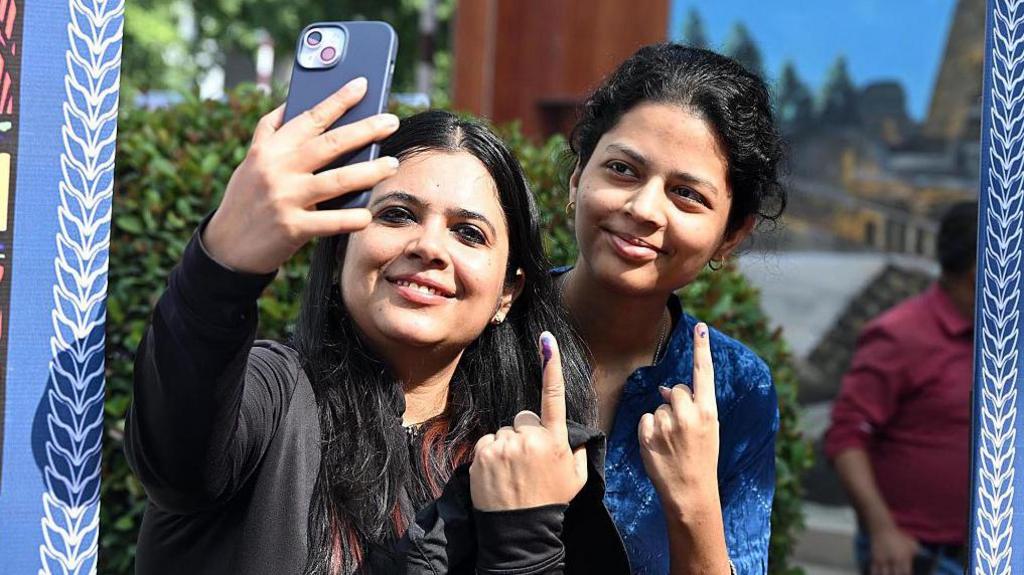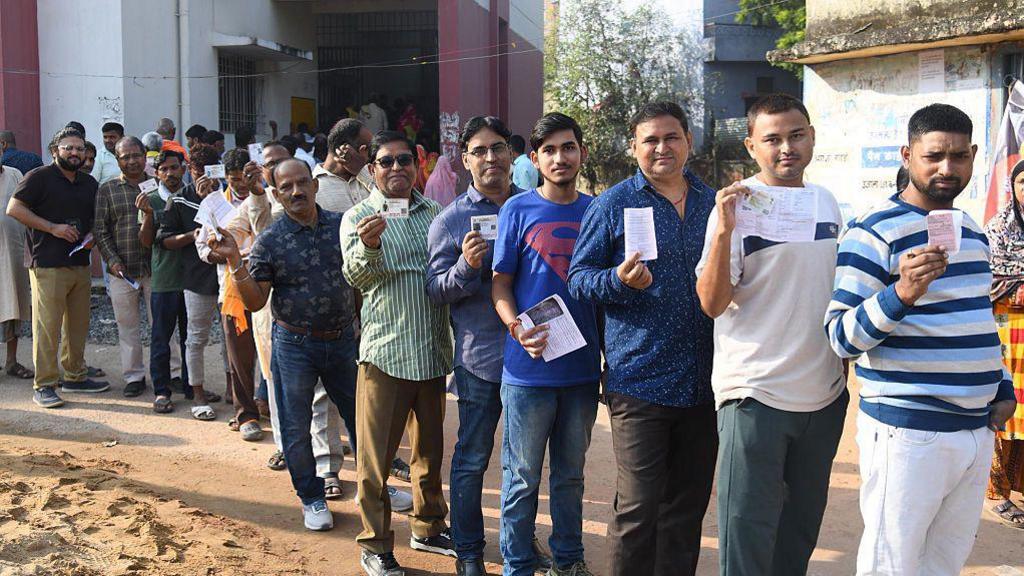Early trends in key Indian state election show Modi's alliance ahead

Narendra Modi's party has never managed to form a government on its own in Bihar state
- Published
Early trends in the eastern Indian state of Bihar show Prime Minister Narendra Modi's Bharatiya Janata Party (BJP) and its alliance partner leading.
Vote counting began at 08:00 local time [02:30 GMT] and will go on for several hours before the results can be called with certainty.
Polls were held on 6 and 11 November and the state witnessed a record voter turnout of 66.91% - the highest since Bihar's first elections in 1951, India's Election Commission (EC) said.
The election was held after a controversial revision of electoral rolls that the opposition alleged would exclude genuine voters and give Modi's party an edge - a charge both the BJP and EC denied.
Several exit polls have predicted a victory for the BJP's alliance, which includes Janata Dal (United) or JD(U) as the prominent partner. The two parties currently rule the state together, with JD(U) leader Nitish Kumar as the outgoing chief minister.
Their main rival is a coalition of India's main opposition Congress party, the regional Rashtriya Janata Dal (RJD) and several smaller parties.
The polls have also witnessed the entry of a new political party led by Prashant Kishor, a former political consultant who has in the past worked with both the BJP and the Congress.
Reports in the first two hours of counting have given the BJP-JD(U) alliance a clear majority in the 243-seat assembly.
But these are still early hours and the results can change and a clearer picture would emerge in the next few hours.
The Bihar polls serve as a precursor to several other key state state elections next year in West Bengal, Kerala and Tamil Nadu, where the BJP is not in power and has struggled to make inroads.
Bihar, with more than 74 million voters, is India's poorest state, with millions migrating to other parts of India for jobs. It is also among the few states in India where Modi's party has not managed to form a government yet on its own.

The elections witnessed a record voter turnout
Nearly half of the voters are women, and the state - which has seen a steady increase in female voters over the years - recorded its highest female voter turnout in history at 71.6% this year.
Both alliances have offered financial assistance schemes to woo women.
The election was conducted after a controversial voter list revision carried out by India's Election Commission a few months ago. The commission released a list of 74.2 million voters in September, weeding out 4.7 million names.
The exercise - which is now taking place in 12 states and federally administered territories across India - was sharply criticised by the opposition.
They accused the commission of dropping many voters, especially Muslims, to aid Modi's party. Both the BJP and the Election Commission have denied such allegations.

Analysts say female voters are expected to play a key role in the Bihar elections
This election is also closely watched because it could be the last one to see active participation from two regional stalwarts - Chief Minister Nitish Kumar of JD(U) and RJD's Lalu Prasad Yadav - who have shaped Bihar's politics for almost four decades.
The political rivals, both in their 70s, are said to be in poor health. They have on occasion joined hands to stay in power.
Kumar is one of the state's most influential leaders and has led the state government for most of the past two decades.
Yadav, who was the state's chief minister in the past, is currently out on bail after being convicted in corruption cases. His son Tejashwi has been projected as the chief ministerial candidate for the opposition alliance.
Follow BBC News India on Instagram, external, YouTube,, external Twitter, external and Facebook, external.